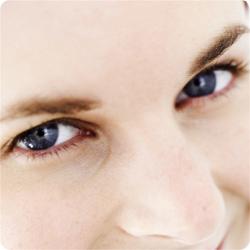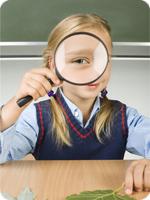Can you name one of the most amazing gifts we humans have been given? Vision. Think what you would do without it. Actually, surveys show that people fear losing their sight more than any other sense, yet we tend to take it for granted.
Proof of that is that unless we need glasses to see everything in sharp focus, most of us neglect getting regular eye exams.
It’s important, however, to take care of our eyes on a daily basis and this includes not over-tiring or over-stressing them.
My eyes feel tired and strained. What can I do about that?
With so many people using computers at work and home, eyestrain has become a very common problem marked by fatigue, irritability, backaches and increased work errors. The condition is so widespread that it has been given a name – computer vision syndrome (CVS) and experts say that 60% to 90% of computer users suffer from some degree of CVS. The good news is that there are ways we can relieve this and help protect our eyes.
- Get yearly check-ups. The National Institute of Occupational Safety and Health (NIOSH) urges people who use computers regularly to have an eye exam every year to track the health of their eyes.
- Use proper lighting. Computer eyestrain is often caused by excessive light from either outdoor sunlight coming in through a window or from harsh interior lighting. Less and softer light is more comfortable for computer use whenever possible.
- Reduce glare on your computer screen by installing an anti-glare screen on your monitor. It’s also possible to have an anti-reflective coating applied to your eyeglass lenses, or see your eye doctor about computer eyeglasses that will help you focus more accurately and with less effort.
- Give your eyes a break. Look away from the computer screen every 20 or 30 minutes, letting your eyes roam around the room and give your eye muscles a chance to relax. Also, blink more often. This will keep your eyes from drying out. An exercise you can do is blink 10 times by closing your eyes as if falling asleep (slowly) every 20 minutes. This will help keep your eyes moist.
- Keep a bottle of artificial tears on your desk and use them when you are using the computer for long periods of time.
- If you can afford to, replace your old tube-style monitor with a flat-panel liquid crystal display, like those on laptop computers. LCD screens are kinder to your eyes and usually have an anti-reflective surface. You can also adjust the display settings on your computer so that the brightness of the screen is about the same as your work environment which is easier on your eyes.
- Closed eyelid massage. This exercise is very relaxing. Close your eyes and lightly and rapidly stroke the lids with your fingertips. Back and forth, top and bottom lids as well. Do this exercise several times a day, each one for a count of about fifteen.
- Nose-bridge massage. Use the finger and thumb of one hand to gently pinch and massage the uppermost part of the nose. You may have, unconsciously, already been doing this exercise when you've had a headache or sore eyes.
- If you work prolonged hours at a computer, think about getting specially-designed computer eyewear for the best possible vision at your computer screen. Your eye doctor can advise you about this.
Perhaps you don’t work at a computer, but you read a lot or watch TV for many hours a day. The eyestrain can be very similar, and the same tips apply for relieving it. If at all possible, try to balance your activities by taking walks or exercising to break up some of the sitting/working on the computer hours.
Vegetables for vision.
What we eat affects our eyesight as well as the health of our bodies. Research has found that there are two nutrients in particular that are very beneficial to our eyes. These are lutein and zeaxanthin. They act as antioxidants, neutralizing free radicals that can cause cell damage. Overexposure to the sun’s UV radiation is one cause of free radical oxidative damage. Research suggests that these nutrients may block out harmful UV rays, stopping them from doing damage to the back of the retina. One clinical study also showed that lutein and zeaxanthin may help prevent cataracts.
These two nutrients are usually found together in dark-colored fruits and vegetables such as these:
Spinach, kale, Brussels sprouts, kiwi fruit, mango, prunes, melon, squash, broccoli, orange peppers, grapes, sweet corn, green beans, peas, oranges, papaya, pumpkin, peaches, sweet potatoes, and dark green lettuce.
Sometimes, fruits and vegetables are better for us raw, but in this case, you will reap more benefits from the lutein and zeaxanthin in this list by eating them lightly cooked, preferably in a small amount of olive oil. By cooking them, it breaks down the cells so that the body absorbs them. However, don’t overcook as this will sap the vegetables and fruit of their vitamin goodness. Try to aim for 5 or more servings of these eye-protecting vegetables and fruits a day.
Studies also show that adding omega-3 fatty acids (cold-water fish or fish oil supplements) and vitamin D are beneficial to eye health.
You only have one set of eyes – take care of them!




shrihari
With so many people using computers at work and home, eyestrain has become a very common problem marked by fatigue, irritability, backaches and increased work errors.This is really the best information shared with us to take proper action against eyes feel tired and strained.